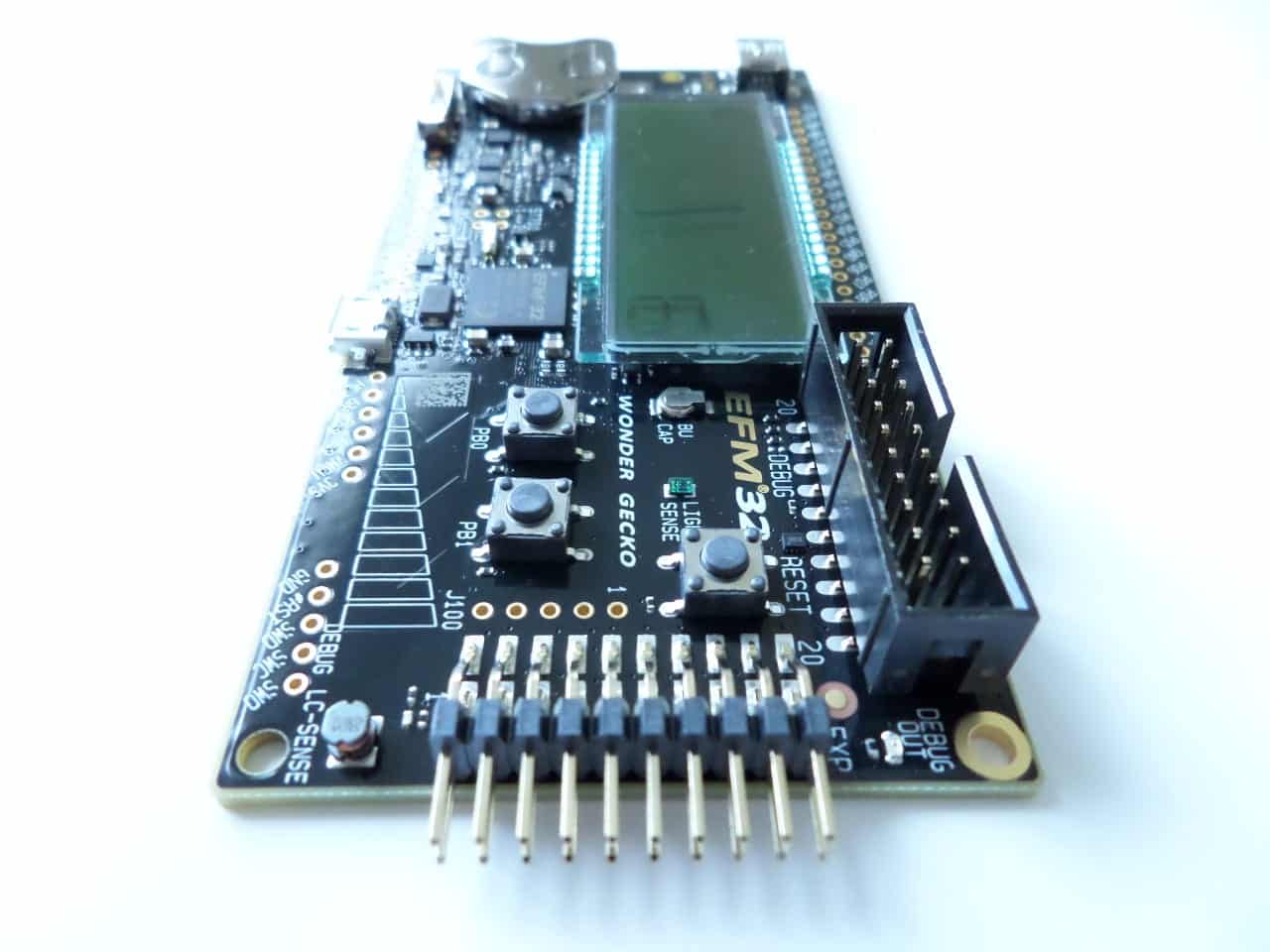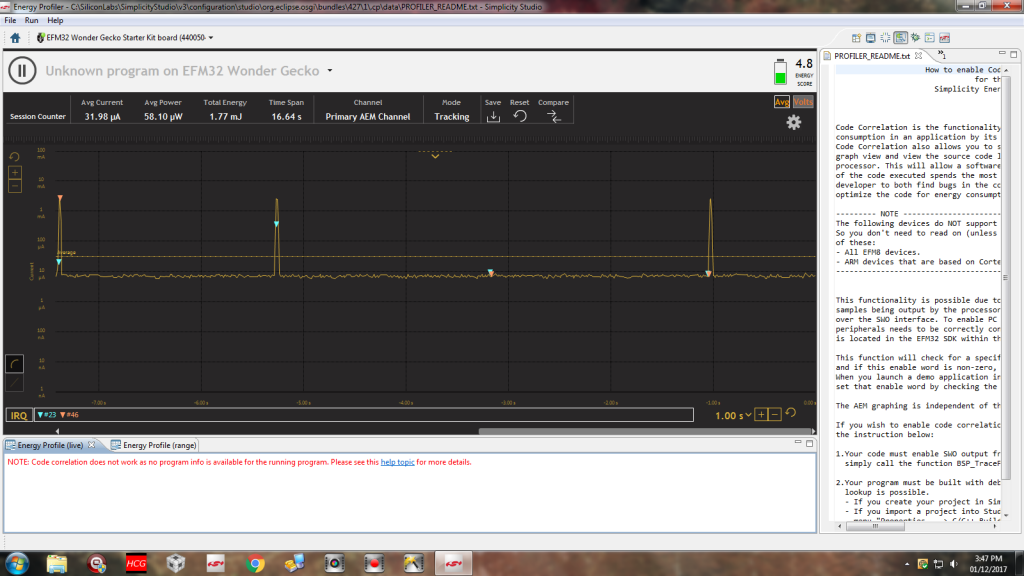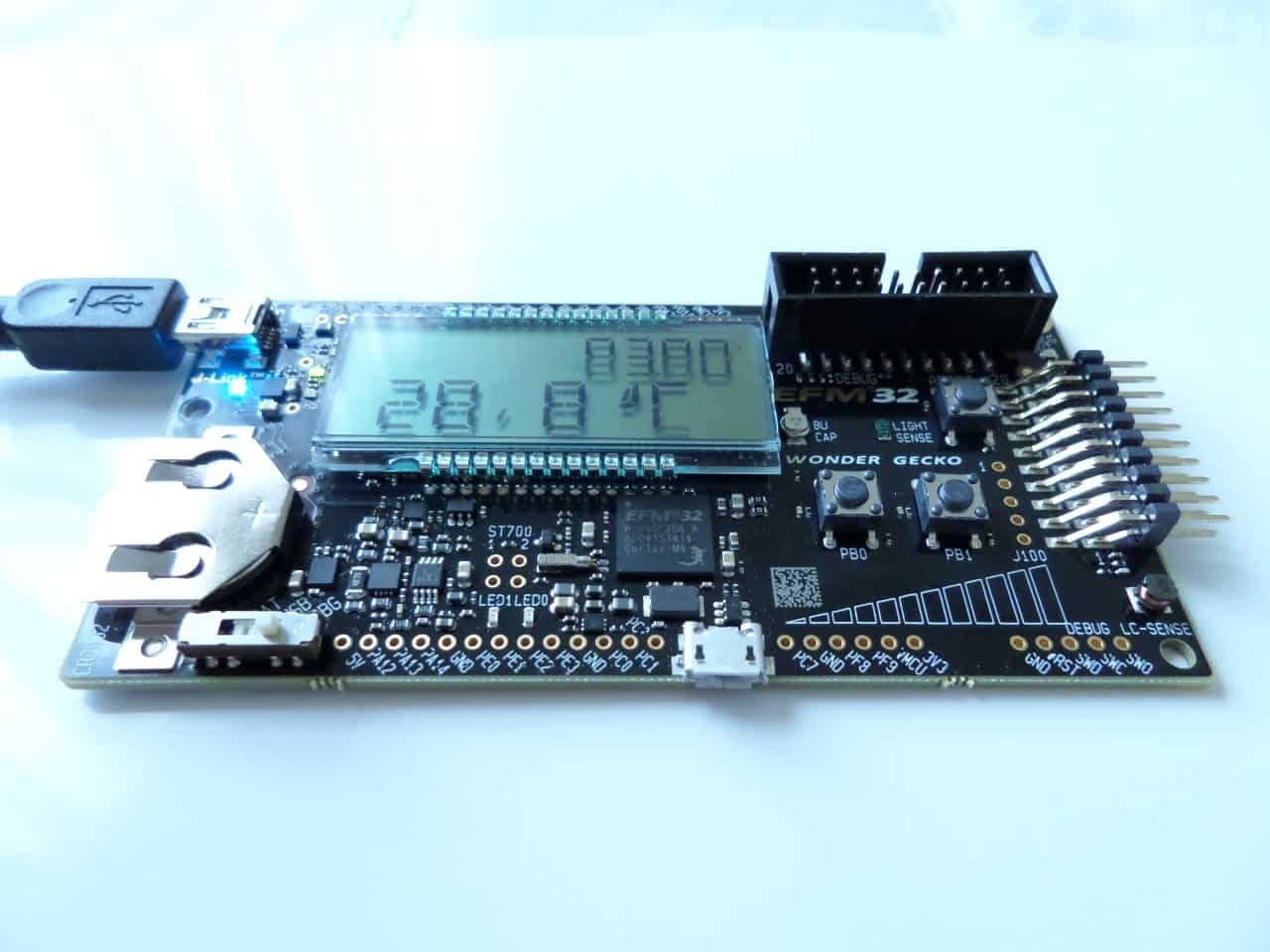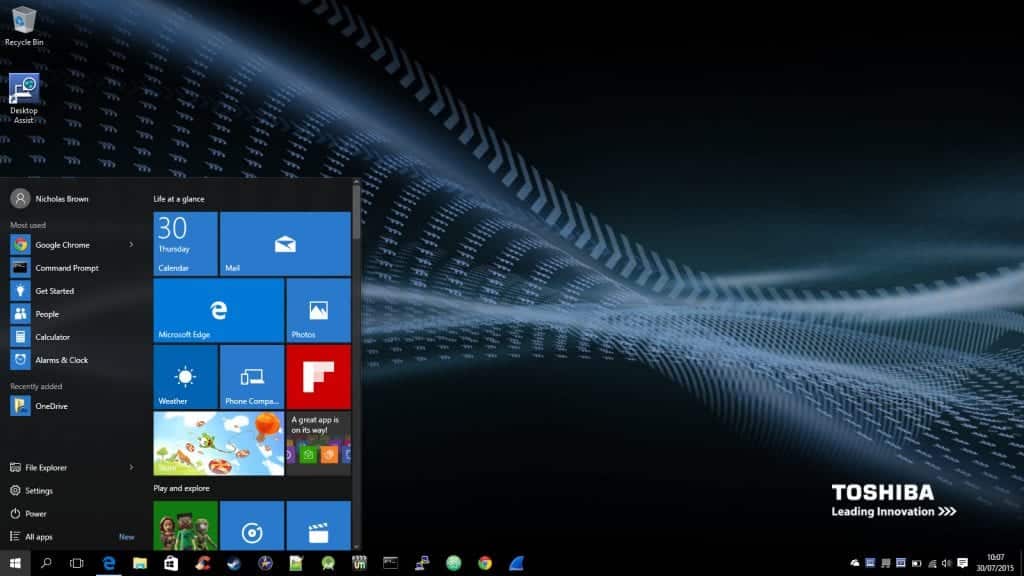I recently got my hands on a Silicon Labs EFM32 Wonder Gecko development kit. The model number of the kit itself is STK3800. It features a 32 bit EFM32WG990F256 MCU equipped with 32KB of RAM, an ARM Cortex M4 48MHZ CPU with DSP, an FPU, 86 GPIO pins, and USB host/OTG support.
The analog peripherals in the MCU include:
– 12-bit Digital-To-Analog Converter.
– 12-bit Analog-To-Digital Converter.
– LE-sense low energy sensor interface.

The EFM32 Wonder Gecko’s LE-sense low energy sensor interface facilitates the operation of up to 16 sensors with minuscule energy usage. One way in which it helps you achieve that low power consumption is it’s ability to operate in energy modes EM0, EM1, and EM2, and wake up the CPU if necessary. As you may know, a microcontroller’s CPU is one of its most power-hungry parts. The ability to put it to sleep while sensor operations continue is very helpful.
The first thing I noticed about the 32-bit kit is the fact that it is equipped with a host of sensors and accessories unlike most kits i’ve seen. The STK3800 kit contains accessories a tinkerer would love, including:
- Capacitive touch sensor (slider).
- Two USB ports (one for debugging/the kit, and the other for USB host support).
- Segment LCD.
- Supercapacitor to test the backup power domain in addition to a battery slot (I love that! It’s a great way to keep the clocks going).
- Ambient light sensor.
- LC (Inductive-Capacitive) metal sensor.
- A 32 MB NAND flash memory module to demonstrate the EBI module’s NAND support. Facilitating easy connection of memory modules like this makes it especially useful for data logging applications.
- Advanced Energy Monitor (AEM) module, which makes it easy to measure the MCU’s power consumption right there in the Simplicity Studio IDE without having to connect a meter. This is great for rapid testing so you can see the effect that a code modification can have on the EFM32’s power consumption in a matter of seconds.

The EFM32 WG990F256 features that stood out to me most were USB host/OTG support, the 32MB NAND flash, and the supercapacitor for the backup domain. Devices with USB host support enable users to plug in external USB peripherals such as USB drives, keyboards, among other things. USB OTG support has gained traction in embedded systems (including Android smartphones and tablets) in recent years.
This is delightful, but like many of Silicon Labs’ other boards, it costs $30 because of the numerous peripherals it comes with. This isn’t a major issue, as many other development kits cost over $30.
Documentation And Example Code
Example DIY projects in which the Wonder Gecko kit may be convenient include: Solar system controls such as solar trackers and solar charge controllers, HVAC controls, automation, other applications that require a microcontroller which doesn’t consume too much power (thereby killing the battery they are supposed to be charging).
Where novices are concerned, the EFM32 Wonder Gecko is better than the EFM8UB1 I previously wrote about with regards to documentation. There are more online resources available for it, but it’s no Arduino. Arduino microcontroller kits are tremendously popular in the DIY/maker community, and are very easy to use. The abundant documentation can be attributed to Arduino’s large user base.
There is a clear reference manual which explains the Wonder Gecko’s peripherals, though. There is also a user’s guide for the kit itself.
EFM32 Code Examples
One of the hidden gems of this kit is the number of example programs that it’s IDE — Simplicity Studio comes with. They can be loaded to the EFM32 right away without any coding. Some of these include, but are not limited to:
- LED blinker.
- Clock demo.
- Thermometer (which displays temperature in both Fahrenheit and Celsius).
- Light sensor demo.
- Metal detector (LC-sense).
- LCD demo.
- Capacitive touch slider demo.
- USB OTG demo.
Where size is concerned, this EFM32 kit has the tiniest footprint I have ever seen for something that has all these peripherals. That’s perfect for DIY projects that require them. Normally, you’d have the option to plug in a battery pack connector, a LCD kit, a capacitive touch sensor kit, among others to get this functionality out of most other kits. You’d end up spending more, and the resulting setup would have a significantly larger footprint than the STK3800.
The Wonder Gecko kit comes with a USB OTG cable as well as two other USB cables for the debugger port, and the second USB port.
The Wonder Gecko starter kit can be purchased for $29.99, and the MCU itself is in the $5 to $9 range, depending on the store.







